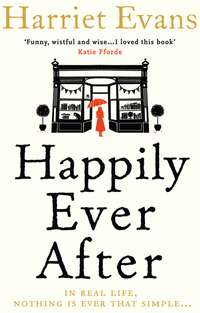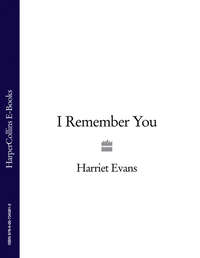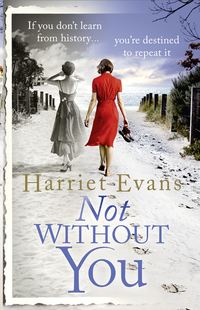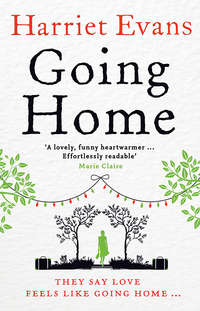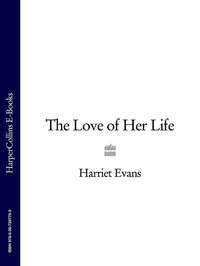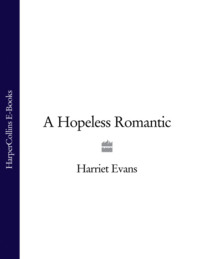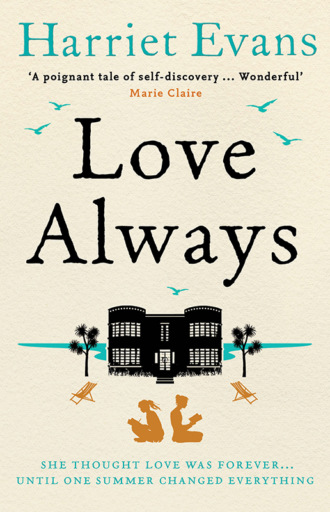
Полная версия
Love Always: A sweeping summer read full of dark family secrets from the Sunday Times bestselling author
‘No bags,’ I say.
Archie looks at me as if I’m insane. ‘No bags? Where are your things?’
I take a deep breath. ‘I can’t stay tonight, unfortunately,’ I say.
He stares at me. ‘Not staying? Does your mother know? That’s crazy, Natasha.’
‘I know,’ I say, trying to sound calm, collected. ‘I’m really sorry, but I’ve got a meeting tomorrow I can’t get out of.’ I wish I could tell them why. But I can’t. They mustn’t know, not yet.
‘I should have thought . . .’ Archie mutters, trailing off. Jay, who is watching me intently, jumps in.
‘The sleeper’s much better and if you have to get back for a meeting, there it is.’ His father frowns at him, opens his mouth to say something, but Jay presses on. ‘Come on, Nat,’ he says, slinging his rucksack into the boot. ‘We’re cutting it fine anyway, aren’t we? Let’s go.’
Suddenly, I remember Octavia and Julius. ‘I saw Octavia and Julius on the train. I mean, think I saw them,’ I amend. ‘Should we—’
‘Oh,’ Archie says, ruffled, he hates any interruption to his plans, to being told what to do by anyone except my mother. And indeed, our cousins are emerging from the station and looking around. ‘I’m sure they’ll have made their own arrangements . . .’
But they haven’t, it turns out. Octavia and Julius are the kind of ruthlessly efficient people who expect others to be at their beck and call. They’re like the answers to those survival guide questions: both of them could survive on a raft floating on the Indian Ocean with only a mirror and a comb for days, I’m sure. But they’d never think of getting round to booking a car or a taxi. They assume that someone else will have got the train down too and will furnish them with a lift. And they assume rightly, of course.
‘I must say, it’s extremely strange we didn’t bump into either of you on the train,’ Octavia says, as Archie drives off along the harbour. ‘I suppose you two were sitting together.’ She makes it sound as if we were planning a high-school shooting.
‘No,’ Jay says simply. ‘Meeting you all is a lovely surprise on this sad day.’
‘Jolly sad. So,’ Julius, already red in the face, looking more than ever like a fatter, less patrician version of Frank, his father, asks, ‘what’s the order of things today? Straight to the church? Or nosh first?’
Squashed next to Octavia in the back of the car, Jay and I dare not exchange looks. It’s as though we’re children again.
‘Hrrr.’ Archie clears his throat, self-importantly. ‘The funeral is at two, so we’re going straight to the church,’ he says. ‘Don’t have time to stop off beforehand and we couldn’t have it any later, some people –’ he raises his eyebrows – ‘some
people came down last night and are going back to London this evening.’ I nod politely.
‘We’ll meet the others there, then?’ Jay says. ‘Yes, yes,’ Archie says briskly, as though he’s got it all under control and supplementary questions are ridiculous. ‘Father’s going with Miranda – with your mother, Natasha – to the church. Then we’re all off back to Summercove afterwards, for some food.’
‘I know Mum’s done an awful lot of cooking,’ Octavia says slowly. ‘She’s been flat out all week, poor thing. It’s been pretty stressful for her.’ She sighs. ‘And clearing out the house, getting poor Great-Uncle Arvind settled somewhere new – I mean, we all know he’s a brilliant man, but he’s not exactly easy, is he!’ She laughs.
Don’t let Octavia wind you up, I chant to myself. She signed up for an Oxbridge-graduates-only online dating service and she fancies George Osborne. That is the kind of person she is.
I would still quite like to smack her though. I hope the feeling doesn’t stay with me all day. I wish I could. I wish I could get really drunk at the wake and start a fight, EastEnders style. Perhaps I should. Archie and Jay are silent. I make a non-committal sound.
‘Your mum’s been wonderful,’ I force myself to say instead because it’s the truth, despite being annoying to admit. Louisa is the one who gets things done, she always has been. She is the one who’d take me into Truro to buy me new socks and shoes for the autumn term at school, muttering all the while about how someone had to do it, mind you, but still. ‘Oh, Louisa, she is wonderful,’ is sort of her shoutline. That’s what you say about her, in the absence of anything else to say.
We are climbing up and out of Penzance. Below us, the sea is frothing and churning. There are dark, restless clouds on the horizon. We drive in silence for a while, going further inland. Here on the south coast the country is wild, but lush, greener than the rest of the country, even though it’s February. We pass Celtic crosses, their intricate decorations long worn away by the wind from the sea, and soon we are driving past the Merry Maidens, the ten girls who were turned to stone for dancing on a Sunday. They’re all so familiar. It is so strange to be here when it’s not high summer, but it is so wonderful all the same, and then I remember why I’m here. Granny would have loved a day like today, walking through the winding lanes and over the high exposed fields, a silk head-scarf covering her hair, her eyes alight with the joy of it all.
In the front, Archie turns to Julius. ‘So, Julius, how are the markets?’
‘Weulllll –’ Julius begins, in his low, blubbery voice. ‘Patchy, Archie. Patchy . . .’
I am spared the rest of his answer by Octavia turning to me.
‘How’s your jewellery stuff going then?’ she asks, curiously. As ever I grit my teeth at this question, which makes it sound as though I’ve been to the Bead Shop and threaded a few plastic hearts onto a string for a friend’s birthday, rather than that it’s my job.
‘Fine, thanks,’ I say. ‘I’m just finishing a new collection.’
‘Wow, how great,’ Octavia says. ‘Where will you sell that, on a stall, or . . . ?’ She trails off, almost embarrassed.
It has been about two years since I sold my jewellery on a stall, first in Spitalfields Market, then at the Truman Brewery nearby. I got lucky when one of my pieces, a gold chain made of tiny interconnected flowers, was featured in Vogue a couple of years ago, and a minor but quite trendy pop star wore it in a magazine, after which a boutique in Notting Hill and one just off Brick Lane started stocking my stuff. That’s how it works these days. Someone I’d never heard of wore a necklace of mine and I ended up hiring a PR to promote myself and paying someone to set up a website. Now I sell online through the website, and through a few retailers. But Octavia, a bit like Louisa, still likes to think that I’m standing behind a stall wearing a hat, gloves and change belt, shouting out, ‘Three pound a pair of earrings! Get your necklaces here, roll up roll up!’
There’s an implied snobbery there too which is hilarious. I made as much on the stall as I do now. In fact, often I’d sell more there in a day than I do in a month online. Plus the stall was a great way of meeting customers and other designers, seeing what was selling, talking to people, finding out what they liked. Pedro, who used to have a veg stall in the old Spitalfields market and upgraded it to an upmarket deli stall in the new, updated, boring Spitalfields, has a house in Alicante, a timeshare in Chamonix and drives an Audi TT. Sara, the girl whose stall used to be next to mine, bought her mum a house in Londonderry last year and paid for the whole family to go on holiday to Barbados. I thought taking myself off the stall would move me to the next level, and I suppose it did.
But increasingly I’ve come to wonder whether I was right. Things have been difficult, the last year or so. The recession means people don’t want jewellery. And even though Jay designed my site for free, bless him, other costs keep mounting up – hiring the studio, paying for materials and for the metals and stones, the PR who I hired, the trade fairs which you pay to attend . . . It adds up. I haven’t heard of the pop star who wore my necklace since, incidentally. Perhaps that explains it.
A few months ago, it didn’t seem to matter. We had Oli’s salary too. Mine was ‘pin money’, as he called it, which I found super-patronising. But it’s true. It used to be joyful, exciting, stimulating. Lately, it is almost painful. I’m no good. My thoughts are no good, my head seems to be blank. And it shows.
‘On the website, through some shops,’ I tell Octavia. ‘The usual.’
‘Oh,’ she says. ‘That’s good – well done.’
I sink lower down into my scarf and look out at the dramatic, wind-flattened black trees, the yellow lichen, the startling green of the sea, crashing against the grey rocks, as the car bowls through the empty, muddy lanes, deeper into the countryside. I chew my lip, thinking.
I wonder if anyone has opened her studio since she died? I wonder, for the thousandth time, how Granny could have stopped painting all those years ago when I know how much the landscape around her meant to her, how it inspired her. But though no one ever says it, it’s obvious something died inside her with Cecily, and it never came alive again.
Archie slows down, and all of a sudden we’ve arrived at the church, perched high on the edge of the moor. I squint, and see the hearse pulled up outside the door. They are unloading the coffin. There, twisting an order of service over in her hands, is Louisa, and next to her, ramrod straight, stands my mother. The pallbearers are sliding the long coffin out – Granny was tall – and it hits me again, that’s her inside the wooden box, that’s her. Archie turns the engine off. ‘We’re here,’ he says. ‘Just in time. Let’s go.’
Chapter Four
Granny always knew what she wanted and so the funeral service is short and sweet. We slip into our seats and the coffin is carried in, my mother, Archie and Louisa walking behind it. I stare at Mum, but her head is bowed. We sit and listen to the minister in the small chapel with big glass windows, no adornment, no incense, everything plain. Outside, the wind whistles across the moors. There are two hymns, ‘Guide Me, O Thou Great Redeemer’ and ‘Dear Lord and Father of Mankind’. The collection is for the RNLI. Louisa reads from Exodus. Archie reads an extract from A Room of One’s Own, by Virginia Woolf. At Granny’s request there is no eulogy. That’s the only thing that is weird. No one gets up and speaks over Granny’s body, there in its oak coffin in the aisle of the church, and it feels strange not to talk about her, not to say who she was, how wonderful she was. But that was her instruction and, like all the others, it must be followed to the letter.
As we are all bashfully singing the second hymn, accompanied by a worn-out, clanging old piano, I look past my mother, to see if Arvind is OK. There’s no space for his wheelchair in the pews, so he sits in the aisle next to the coffin of his wife. It is rather ghoulish, but Arvind doesn’t seem to mind. He is the same as always; shrunken to the size of a child, his nut-brown head almost bald but for a few wispy black hairs. His eyes are sunk far into his head, and his mouth is pursed, like an asterisk.
He stares at me, as if I am a stranger. I smile at him, but there is no reaction. This is Arvind’s way, I’m used to it. It was only when I was old enough to know that a ‘That coat is lovely on you!’ means ‘That coat is garish and vile’ or a ‘Wow, I love your hair!’ means ‘Good God, who told you you could carry off a fringe?’, that I began to realise how lucky I was to have Arvind as my grandfather. He simply cannot dissemble.
Ignoring the hymn, he holds up the flimsy order of service and waves it at me. ‘Is it recycled?’ he says, in his incredibly penetrating, sing-song voice, which still has a strong Punjab accent sixty-odd years since he came to the UK. ‘Is their carbon footprint reduced? This is very important, Natasha.’
Separating us is my mother, in her sixties but still ravishing, in a long black tailored coat with an electric blue lining, her thick dark hair cascading down her back, her green eyes huge in her heart-shaped face. Now she looks down at Arvind.
‘Be quiet!’ she hisses.
‘We must all recycle everything, every little thing,’ Arvind tells me, leaning forward so he can catch my eye and speaking completely normally, as if it were just the two of us taking tea together. ‘China can carry on emitting more CO2 than the rest of the world put together, but it will be MY FAULT if the world ends, because I did not recycle my copy of PLAY. BOY.’ He finishes loudly, his voice rising.
‘Dad, shut up,’ Mum grips the top of his arm in rage. ‘You have to be quiet.’
‘Father,’ Archie says, rather pompously, behind us. ‘Please. Be respectful.’
‘Respectful?’ Arvind shrugs his shoulders, and waves his arms around in a grand gesture. ‘They don’t mind.’
I turn around, partly to see if he’s right and catch my breath as I see for the first time how many people are here. I hadn’t really noticed as we hurriedly took our seats, and more have arrived since then. They’re standing at the back, three deep in places, crammed into the small space. They are here for Granny. I blink back tears. Who are they? A lot of them are rather advanced in years. I guess some are friends from around here, some are people down from London, old friends from the golden days. I don’t recognise many of them. They are all watching this scene at the front of the chapel with interest.
Around me, my relatives are unamused. Archie is furious. Octavia looks as though a nasty smell is troubling her. Louisa is flustered, staring beseechingly at Arvind; her lovely brother Jeremy and his wife Mary Beth, who have flown in from California for the funeral, are studiously still singing. The Bowler Hat is officiously, soundlessly, opening and shutting his mouth, like a minister for Wales who doesn’t know the Welsh national anthem. Arvind catches my eye, winks, and goes back to the hymn. I stare at the sheet, unable to concentrate on the words, not sure whether to laugh or cry.
As the service ends and we process out to the churchyard for the burial, following Granny’s coffin, I realise I am leading my mother who has Archie by the arm while Jay pushes Arvind next to us. Louisa, the architect of this, has respectfully dropped behind, and it is just the four of us, my cousin and our parents, who have their arms around each other. I don’t know what we should be doing, other than following the minister. I grip Mum’s arm, feeling strange, and wishing someone else was here with us. I especially wish Sameena were here, but she’s in Mumbai visiting her sister who is not well, and she’s not flying back till next week.
Well, really, it’s Oli. I wish Oli were here, holding my hand. But of course he’s not, because I asked him not to come.
The graveyard looms, our small family totters towards it, disjointed and odd, and behind us comes Louisa, the de facto leader of her branch of the family, clutching her brother Jeremy’s hand.
‘Earth to earth, ashes to ashes, dust to dust.’
My mother sobs, loudly, a great shuddering cry. Archie hugs her closer. Jay is watching the hole in the ground, intently, as if it is moving. Arvind is gazing into space, he doesn’t look as if he’s here at all.
They lower Granny’s coffin into the ground, and I look around again to see the congregation now assembled behind us, scattered in and around the lichen-covered gravestones on the edge of the moor. Suddenly I think of Cecily. Where’s her grave? I look around. Wouldn’t she have been buried here, too?
Granny was from here. But we, my mother and uncle, my grandfather and my cousin, we are from many other places as well. With a sudden flash of pain in my heart I long to be back in London, walking through the cobbled streets round Spitalfields and Bethnal Green, feeling the centuries of history in the city under my feet.
But now I’m away from it, now I see the emptiness of my life there, in a way I haven’t before. It is empty. A job I can’t do, a marriage I might lose, a life I don’t recognise. They are throwing more earth into the grave now, it patters softly on the wood, like rain. I feel my throat closing up.
When the crowd starts to disperse, gathering outside the church, getting into cars that are clogging up the tiny lane, we are all left around the grave. No one speaks. I look at their faces: Mum’s is a mask, smiling and staring into space; Archie has sucked his lips in and is bouncing on his feet. Louisa sniffs, and puts her hand gently to her mouth. Behind her, the handsome Bowler Hat has bowed his head, his face serious. Next to him, Louisa’s brother Jeremy looks out of place. He is sleeker than them all, tanned, his hair is good, his clothes are pressed, his teeth are white. He is standing a little apart from his sister and cousins, holding Mary Beth’s hand. I look at them all, and then down at my grandfather. Arvind is staring into the grave, and his thin fingers are gripping the plastic arms of his wheelchair.
Something strikes me then: it’s funny, but they look totally unconnected. There’s no likeness between them all, no sense that we are one big family gathered together for a funeral. My friend Cathy and her mother and sister are like peas in a pod. Whereas Mum, Jeremy, Louisa, the Bowler Hat – they might have just met, you’d never know they spent every summer down here, four and five weeks together at a time. I’ve seen photos – not many, I suppose because of Cecily they don’t keep many here at Summercove. But Mum has a couple in her room at the flat, her and Archie, posing on the terrace, Archie like a young film star, raising his eyebrows, my mother Miranda pouting beautifully, Louisa and Jeremy smiling, their arms crossed. And there’s one of Archie and the Bowler Hat, and Guy, gurning down on the beach. I suppose that was the summer the Bowler Hat and Guy came here for the first time. In Granny’s room, she had a picture of Louisa and Mum, demure in halter-neck swimming costumes, lying on the lawn together when they were about twelve or so.
You’d never know it to look at them together now. They seem like strangers to each other.
Arvind clears his throat and the spell, whatever it was, is broken. The sun has gone in and it is very cold. I sway on my feet, a combination of grief, hunger, fatigue. Suddenly, an arm is wrapped round my shoulders, and Jay whispers in my ear, ‘Come on, let’s go back to the house. You need a drink.’
We walk in tiny steps towards the car, behind other mourners who are chatting and gossiping as they stand around waiting for us to drive off. Our progress is slow. Oli likes to collect sayings, things that you say and then realise afterwards are a cliché. Is it just me, or are policemen getting younger and younger? is one of his favourites – I said that to him without thinking last year. Now I want to say, We are moving at a funereal pace. I look at Jay, but I know he won’t get it.
‘Everyone,’ Louisa is saying loudly, her voice floating across the ranks of mourners in the watery sunshine, ‘Frances’s family would like to invite you all back to Summercove for some refreshments. Please, do follow us. Thank you.’
With her pink and white complexion, her halo of greying-blonde hair and striped padded jerkin over sensible country-woman’s attire, she looks like an organised angel. One of the admin assistants helping St Peter at the Pearly Gates. People nod respectfully – you always do what Louisa says. They smile at her. My mother walks on ahead, and I notice the glances she gets in contrast. The curious stares, the sighs. Louisa follows Miranda, her beautiful, wicked cousin, and we make our way to the cars. We are going to Summercove.
Chapter Five
Without the setting, Summercove would still be a beautiful house. With it, it’s – well, it’s jaw-dropping. To me, at least. Maybe it’s not to everyone’s taste. I don’t care. To me, it’s the place I’d rather be, more than anywhere else. Always.
Off a small lane, covered in foliage in summer so green and dense it’s almost dark, you turn down a driveway and suddenly the house is there, at the edge of a lawn that slopes gently towards the cliffs. There is a proper garden at the back, manicured grass, rows of lavender, rose bushes climbing up the side of the house, a table and chairs for tea or for lounging in. There are even palm trees – they grow everywhere in Cornwall. But at the front of the house is a terrace with simple stone steps leading to the lawn. At the other end is a beautiful tiny gazebo, like a glass carousel, where you can sit and look out to sea. Next to the house by the lane is a gate, which opens onto a tiny path with high hedgerows that in summer are smothered in orange kaffir lilies, ivy, brambles, full of noisily chirping crickets. The path gives way to grassy moors and stony rocks, from where the rest of the coast suddenly opens up in front of you, the foaming cerulean sea, the blue, blue sky, the wild flowers dotted all around, and if you’re lucky and it’s a clear day, you can see across to the Minack Theatre one way, and almost to the Lizard the other. You have to be careful as you clamber down, holding on to a rope chain, as the path has been cut through the rocks and is frequently slimy and damp. You must move slowly, surely, taking care not to slip. You climb down, down, down, and you’re on the beach, where the sand is custard yellow and there are flat black rocks to lie on. And there’s no one else around. Just us, our own private beach, leading down from the house.
Summercove was built in the 1920s, for a millionaire’s son who wanted to be an artist (along with roughly twenty per cent of the people who come to Cornwall). It wouldn’t look out of place in Miami – a low square art deco house with round edges, studded with big rectangular suntrap windows and gracefully settled in the incline of the land before it dramatically drops away to the cliffs. The sitting room has French doors which lead out onto the terrace, the bedrooms upstairs have wide window seats.
It is not a mansion, but it is big, and airy, and light, and always warm, built in concrete and brick to withstand the rough sea winds. My room, which I shared with Octavia for the week or so that our holidays coincided but usually was lucky enough to have to myself for most of the summer, was small and would have been pokey had it not looked out to sea. It was my mother’s room when she was younger. The curtains were 1950s, Heal’s, pale grey, tiny patterns dotted over in blue, green, yellow, red. The furniture is darling, two small beds with dark wooden frames pale pink silk goose eiderdowns, a bookcase also in dark wood stuffed with my mother’s books from when she was little: My Friend Flicka, Swallows and Amazons, the Narnia books, Jane Austen, and – my favourite of all – a tiny low armchair on brass wheels, covered with a sturdy navy hessian studded with pink polka dots. It is worn in parts but still intact, and I used to sit either there or in the window seat for hours.
I was a dreamy, withdrawn child, extremely awkward, a sad contrast to my glamorous, confident mother. I don’t have time for people who claim special privileges because they suffer from crippling shyness. We all do, I believe, we just learn to carry it off in different ways. My mother is, I think, also shy and awkward, but she gets past it by assuming a persona, that of the mercurial beauty. But I remember in particular that when I was twelve or so, and life seemed overwhelming – at my new scary secondary school, with my mother, with my growing awareness of my place in the world – my room at Summercove was an absolute refuge to me.
The Hammersmith flat was boiling in summer, freezing in winter, with paper-thin walls that meant everyone knew your business. Here, by the sea, I was private. Even for the brief time that Octavia and I were both there together, she’d spend most days outside, down on the beach and in the garden. Whereas I could sit in my room and sketch for a whole afternoon, or stare out at the horizon, or write terrible poems about how no one understood me, all the while flicking my hair from one side to the other, eyes filling with tears and sighing about the awfulness of my life. I was probably ghastly, I’m afraid to say.


